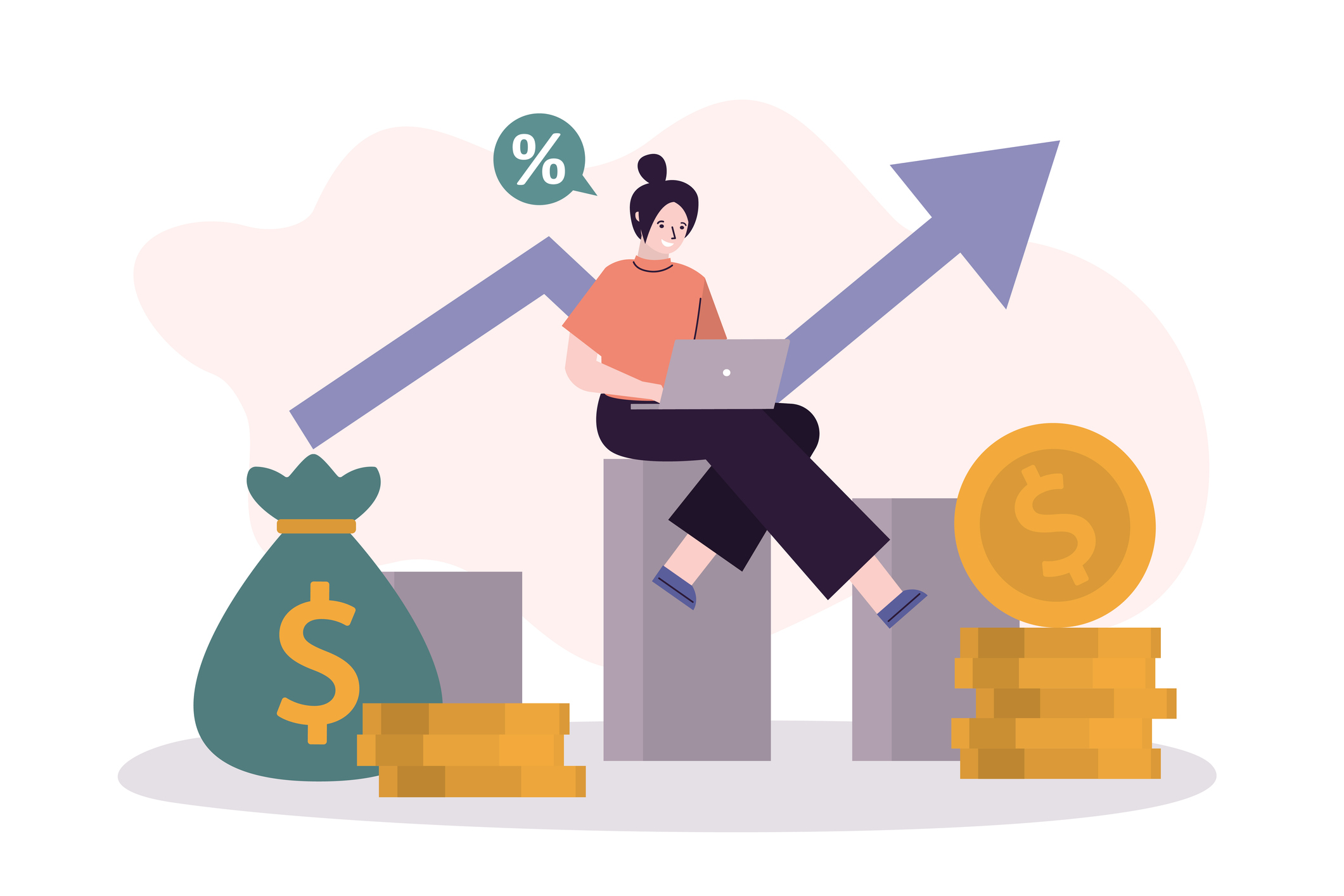
To combat inflation, the Federal Reserve has raised interest rates 11 times since March 2022. As interest rates keep rising due to the Fed hikes, so do rates on high-yield savings accounts and CDs. At the most recent meeting in July, the central bank decided to increase rates by a quarter of a percentage point, bringing the federal funds rate to a target range of 5.25% to 5.5%, the highest level it's been in 22 years.
The Federal Reserve’s decision means that for most high yield accounts, you’ll likely see rates go up slightly. And if the Fed decides to raise rates again sometime in the coming months, expect the same. However, keep in mind that as inflation starts to cool, it’s a good idea to take advantage of savings rates while they remain high, as yields on CDs are expected to peak and then level off this year.
According to Bankrate, by the end of 2023, the national average for one-year CDs is estimated to increase to 1.8% up from 1.38% at the end of 2022. Further, the national average for five-year CDs will reach 1.5% by the end of this year, with some of the highest-yielding accounts offering rates of 4.1%.
And, if you research your options and shop around, you'll find that some 1-year CDs are already offering APY rates of over 5%. Often, in order to get the top rates on CDs you'll need to forgo your brick-and-mortar bank and instead opt for an online "challenger" bank. And sometimes, but not always, you may need a higher deposit ($1,000 minimum) to access these best CD rates.
Check out our tool — in partnership with Bankrate — which lets you search for the best CD rates available now.
What is a CD?
A certificate of deposit, or CD, is a type of savings account that holds a fixed amount of money for a fixed period of time. Interest rates on CDs are typically higher than they are for regular savings accounts, and the rate that you sign up for stays the same rate for the whole term. Meaning, if rates drop for new CDs, you’ll still keep your rate. Keep in mind that if you decide to withdraw before the term is up, you’ll be stuck with pretty hefty exit fees that can offset any interest you've already earned.
CDs are good options when saving for a specific goal, but they're not great for savings that you’ll need immediate access to — so it's best to avoid putting your emergency fund in a CD. Typical term lengths for CDs range anywhere from three months to five years.
Determining what CD term you should plump for is easier if the money is going towards a particular savings goal. For example, if you plan on getting married in three years, then opening a 3-year CD makes sense.
However, you may be looking to open a CD with no particular savings goal in mind, so you’ll have to decide whether to get a short-term or long-term CD. To do so, you should consider interest rates, early withdrawal penalties and the amount of time you’re willing to commit. Typically, longer-term CDs have higher interest rates than short-term CDs, but you’ll have to wait longer to access those funds or risk incurring a fee.
Why open a CD
CDs are a great option if you’re looking for a guaranteed rate of return on your savings. They’re geared toward earning interest on money that’s already been saved, often for a future purchase, like a down payment on a vehicle or home. With a CD, you’re making an up-front payment, rather than contributing monthly, so it's not a useful tool for those looking to save gradually. Therefore, if you’re planning to make continuous deposits into a savings account, a traditional or high-yield savings account would be a better option for you.
Pros of CDs
- Safe, no-risk, investments
- There's a guaranteed rate of return
- Offer higher interest rates on deposits than traditional savings accounts
- Usually have no monthly fees
Cons of CDs
- Money cannot be easily accessed, without facing early withdrawal penalties.
- You’ll pay taxes on interest accumulated in the CD.
- Fixed interest rates on CDs mean that if rates rise, you won’t be able to take advantage of these higher interest rates.
- Lower returns than if investing in stocks or mutual funds (but always remember the value of your investment can go down as well as up).
Some of the best CD rates available now
First Internet Bank
APY: 5.35%
Minimum deposit: $1,000
Term: 1 year
Finworth
APY: 5.52%
Minimum Deposit: $50,000
Term: 14 months/18 months
Limelight Bank
APY: 5.25%
Minimum Deposit: $1,000
Term: 1 year
Forbright
APY: 5.30%
Minimum Deposit: $1,000
Term: 1 year







